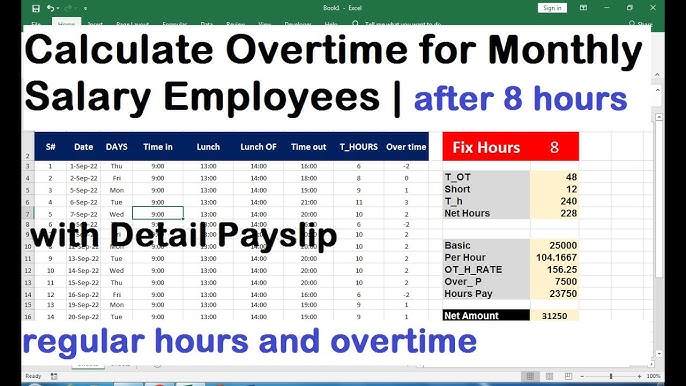What is Monthly Salary?
Monthly salary refers to the fixed amount of money an individual earns each month.1 It’s a common way to express compensation, especially for salaried employees.
Why is Monthly Salary Important?
- Budgeting: Knowing your monthly salary helps you create a realistic budget.2
- Financial Planning: It’s essential for long-term financial planning, such as saving for a house or retirement.
- Decision Making: Understanding your monthly income can influence major life decisions, like buying a car or starting a family.
- Debt Management: It helps you manage debt and create a repayment plan.3
How is Monthly Salary Calculated?
Monthly salary is typically calculated by dividing the annual salary by 12:
Monthly Salary = Annual Salary / 124
For example, if your annual salary is $60,000, your monthly salary would be:
Monthly Salary = $60,000 / 12 = $5,000
Factors Affecting Monthly Salary:
Several factors influence an individual’s monthly salary:
- Job Role and Responsibilities: The complexity and level of responsibility of a job.
- Experience and Skills: The number of years of experience and specific skills required for the job.
- Education and Qualifications: Educational qualifications, certifications, and degrees.
- Industry and Company: The industry and company you work for can significantly impact salary levels.5
- Location: Geographic location and cost of living can affect salary rates.6
- Performance and Productivity: Individual performance and contributions to the company.
- Negotiation Skills: Effective negotiation can lead to higher monthly salaries.7
Understanding the Impact of Taxes and Deductions:
While your monthly salary is your gross income, your net income, or take-home pay, will be lower due to various deductions:8
- Income Tax: A tax levied by the government on your income.9
- Social Security Tax: A tax that funds social security programs.10
- Medicare Tax: A tax that funds Medicare, a health insurance program for the elderly and disabled.11
- Health Insurance Premiums: Costs associated with your health insurance plan.
- Retirement Plan Contributions: Money you contribute to retirement savings plans.12
By understanding your monthly salary and the factors that influence it, you can make informed financial decisions and ensure that you’re maximizing your take-home pay.
Would you like to know more about a specific aspect of monthly salary, such as how to calculate take-home pay or how to negotiate a higher monthly salary?




